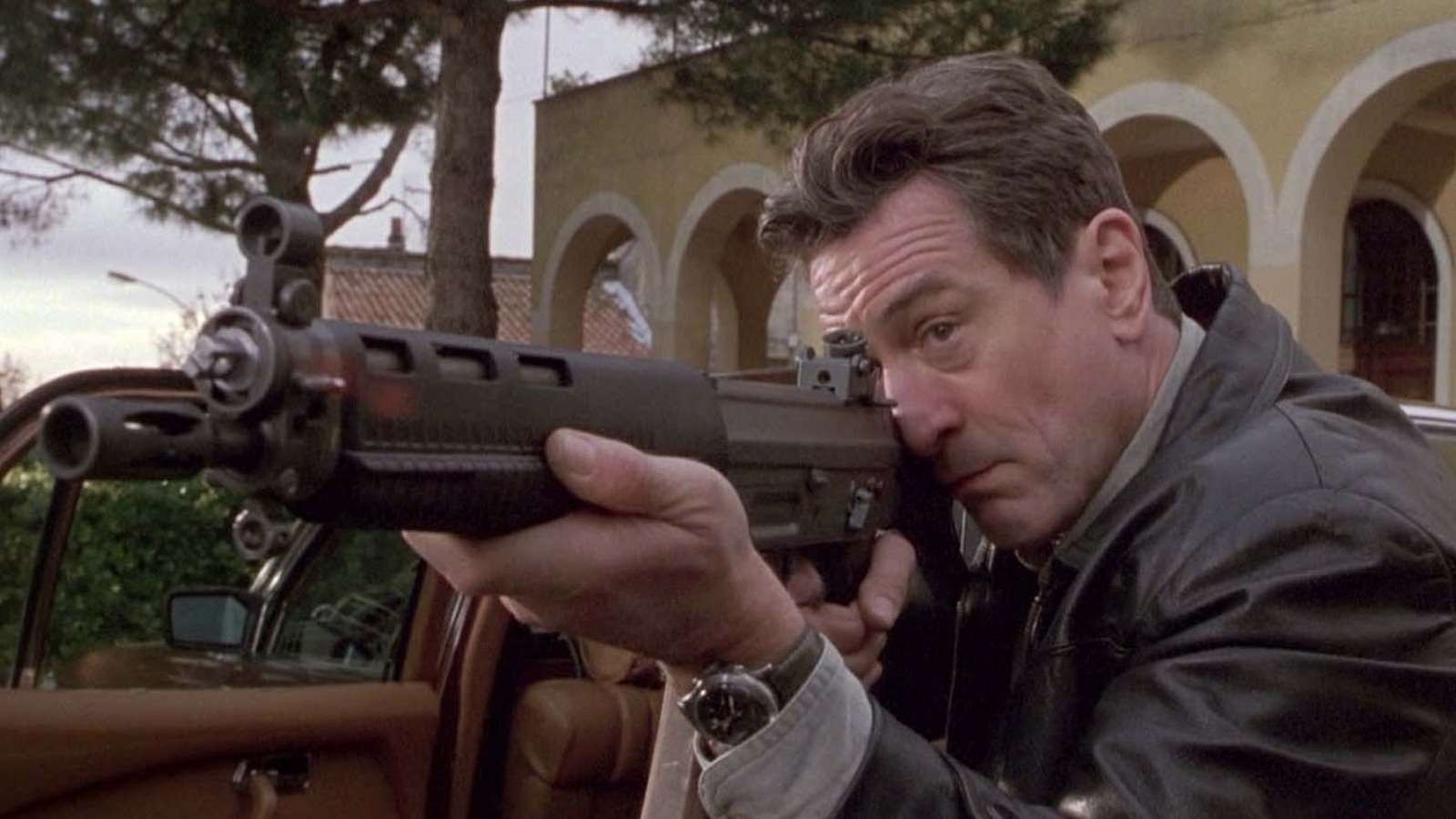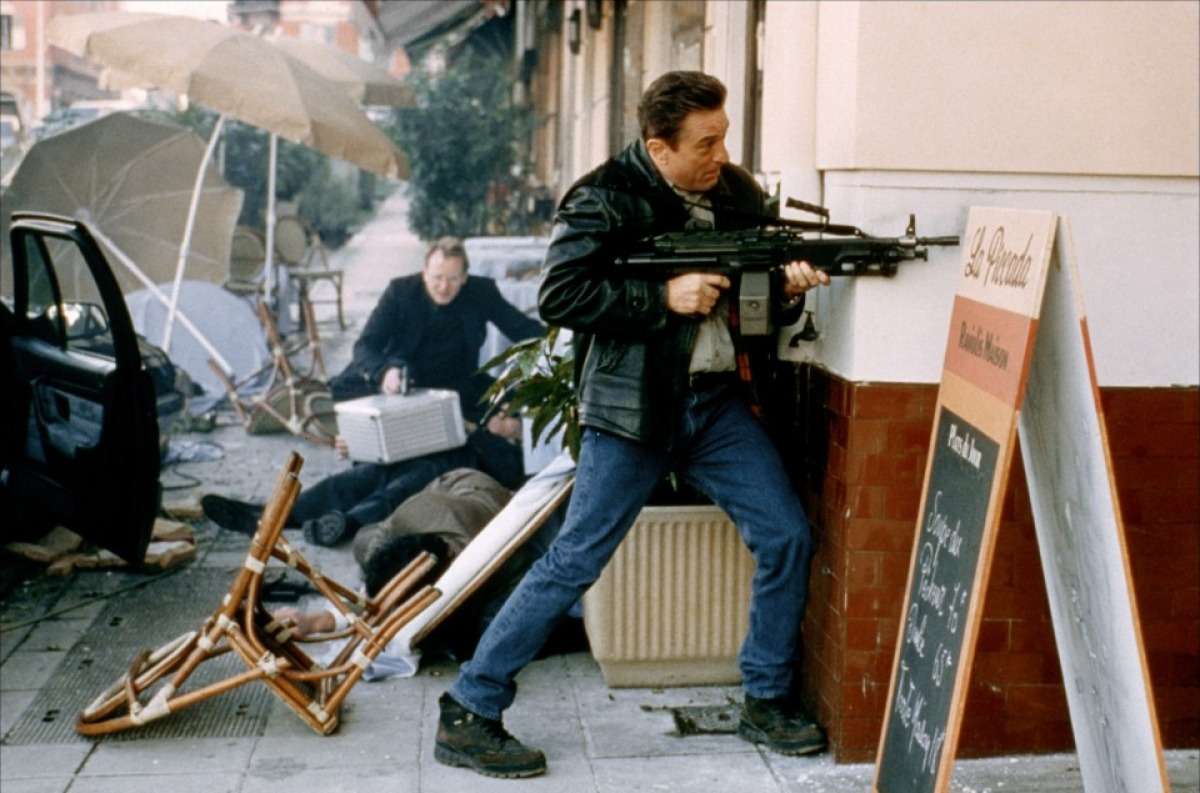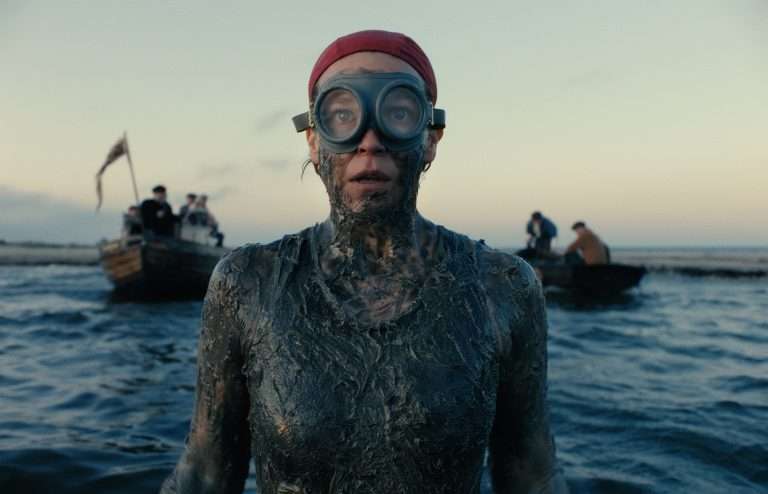Legendary director John Frankenheimer’s penultimate effort, “Ronin” (1998) finds him returning to firm action-thriller footing after the disaster of “The Island of Dr. Moreau” remake. But what’s most interesting about the film is that noted playwright and screenwriter (and director) David Mamet worked as a script doctor. As such, you’re left with an interesting hybrid of wordplay, plotting, and muscular action filmmaking. Frankenheimer, whose career dates to Hollywood’s golden age and who made several interesting and intelligent political thrillers in the 60s and 70s (“The Manchurian Candidate,” “Train,”) and Mamet’s dialogue-driven formation make a fascinating pairing.
Mamet chose to write under a pseudonym after not receiving sole credit, but his fingerprints are unmistakable all the same as his word plays and sly deconstruction of the action genre plays counterpoint to Frankenheimer’s straightforward presentation. In principle, these two contrasting approaches may have canceled each other out, but while they don’t sit perfectly together, they spark nicely to create a combination not found in many other action films.

The film’s narrative revolves around a group of assassins on a mysterious mission for a briefcase (Its contents are never revealed – a classic Hitchcockian McGuffin.) as they’re mired in double-crosses and shifting loyalties. Our central characters are Sam (Robert DeNiro) and Vincent (Jean Reno). Hired by a mysterious IRA contact (Natascha McElhone) for a political mission, the sleek professionals are initially interested only in financial gain but will find themselves fighting for their lives. Allied (or are they?) with Gregor (Stellan Skarsgård), a former KGB computer programmer and alleged SAS firearms expert Spence (Sean Bean), their small crew is tasked with the acquisition of the briefcase.
But just as Sam and Vincent suspect, they’re not being told the whole story. Mamet bathes the film with his trademark rapid-fire dialogue, building in the “wandering samurai” motif of the title, his characters living by their own stoic macho codes in a profession that values their work, but rarely their lives. All the while, Frankenheimer attempts with considerable success to recapture some of that old 70s magic. There’s a marvelous sense of place to the Parisian locations, and this grey, European sort of aesthetic probably bled into the upcoming Bourne franchise.
For drama fans, Mamet’s machine-gun patter is likely to be the key selling point, and indeed, his game of words slyly attempts to comment on the whole genre as his characters are caught in an absurdist noir world of shifting loyalties and con games, all the while stoic and effortlessly stylish, living by their own rules. Yet some are betrayers, some are even impotent behind their macho bluster. DeNiro and Reno are simply delights: macho clever, and cool. If for Mamet, the whole enterprise is an exercise, he simultaneously plays with genre conventions while being beholden to them.
Frankenheimer, meanwhile, injects the film with all his 70s thriller stylings: noirish plotting, bathed in rainy skies, grey trench coats, and moody, gritty cobblestone settings. The atmosphere of the film is marvelous, giving the viewer a sense of a world in constant flux; in Mamet’s hands, even the most innocent of actions may be machinations of much larger forces in classic noir style You can almost feel the rain and smell the streets.

Of most interest to action fans though will be Frankenheimer’s masterful car chases, straight out of “The French Connection.” Rather than the cartoonish “Fast and Furious” comic-book chases, Frankenheimer handles things with a sense of realism, energy, and masterful editing. There’s a marvelous sense of grit and physicality and a sense of almost putting you in the car with the characters.
There is admittedly not a lot in “Ronin” that’s all that new; Mamet’s attempts at playful dialogues and narrative deconstruction are ideas he’d revisit better in films like “Spartan,” whereas Frankenheimer revisits well-worn 70s thriller tropes both he and others have handled better in other films. The film’s themes of soldiers abandoning their nations and fighting for themselves, tying into the titular samurai motif, aren’t fully explored and most of politics are deliberately muddled to give the film more thrills than substance. There’s none of the true paranoia of the 70s tales the film is emulating. But there are ample genre thrills and wonderful performances, orchestrated by an old master with a deft hand, and for action-hungry fans, everything is provided with a nice dose of intelligence and style.


![The Meyerowitz Stories [2017]: An Apotheosis Of Cinematic Realism](https://79468c92.delivery.rocketcdn.me/wp-content/uploads/2018/03/m-768x432.jpg)


![All U Need is Love [2021]: ‘NYAFF’ Review – A Quarantine caper solely for Hong Kong Cinema Enthusiasts](https://79468c92.delivery.rocketcdn.me/wp-content/uploads/2021/08/All-U-Need-is-Love.jpeg)
![Léa & I Netflix [2019] Review: Yearning For the Alternatives and a Better Life](https://79468c92.delivery.rocketcdn.me/wp-content/uploads/2019/08/MV5BMjE4YzY2N2QtYzg0NS00NTZjLTg2ZTQtZDIyZWFhOGI4Yzg5XkEyXkFqcGdeQXVyMjUxMTY3ODM@._V1_QL50_-768x432.jpg)